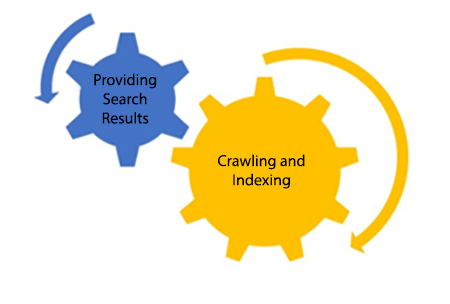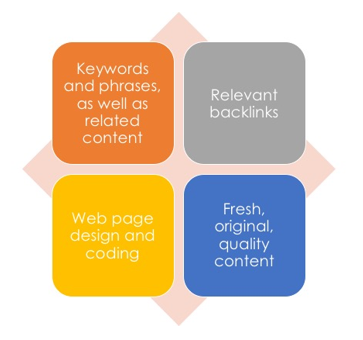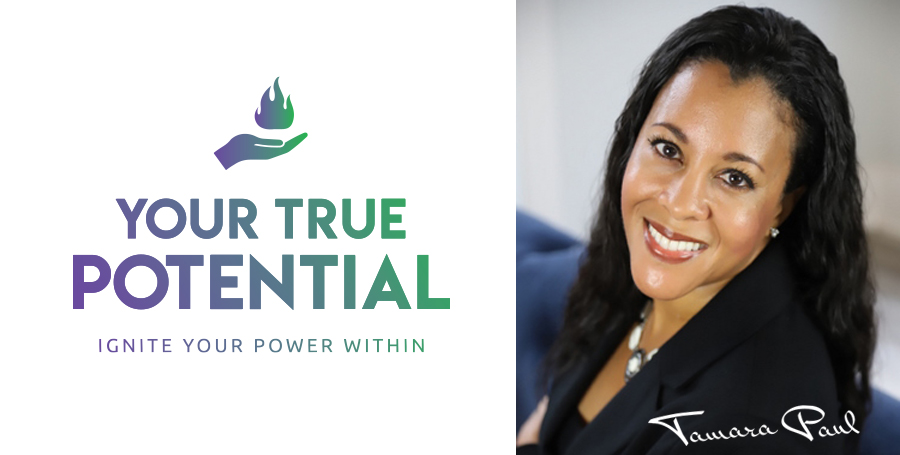Welcome to
What Does SEO Even Mean?How to make sure people find YOUR business when they search online
Module One:
How Search Engines Work
Search engines are web pages where you enter words when you are searching for products, services, information, and other things on the internet. Search engines like Google and Bing are constantly roaming the vast World Wide Web. They employ search engine “spiders” who “crawl” the web, and their ongoing goal is to find and index every web page and piece of content on the internet.
Google is the largest and most important internet search engine in the world. As of 2016, estimates show Google with approximately 65% of all search engine traffic. Bing owns roughly 30% to 33% of search engine traffic. Google’s search engine may find over 1 million pages or pieces of content concerning “squirrel-proof bird feeders”. Among all of those many pages, how does Google decide which content to rank at the top of it search results? Search engines rank content higher when that content has been optimized according to the search engine’s current ranking algorithm.
An important part of search engine algorithms is concerned with keywords. When you have the right mix of keywords, search engine optimization, and great content, you will eventually rank higher than your competition.
Let’s take a closer look at the 2 major functions of search engines:

- Crawling and Indexing
- Providing Search Results
Crawling and Indexing
All of the information linked online can be seen as a spider’s web. As mentioned above, search engine spiders are always crawling the web, looking for new and updated content. When they come across a new web page, or a page they have previously seen which has been changed in some way, they add that content to their search engine library, or index.
Incidentally, search engine spiders read code and text. They don’t read text exactly the same way a human being does, but they are getting better all the time. Search engine providers like Google are constantly working to make their software as human as possible. This means your content should be easy to read. It also means HTML and other code used to design your site needs to be appealing to the search engines as well. When you do both of those things properly, the search engines send you plenty of relevant traffic.
According to complicated and detailed formulas, search engines index that content as more or less relevant for certain keywords and keyword phrases. A page which ranks #1 on Google for “homemade lemonade recipes” may not even be indexed at all for the keyword phrase “how to raise zebras”. That’s because different words are used to discuss those very different topics. This is why using the appropriate keywords, and related words and phrases, is extremely important so that search engines can find your content and index it properly.
Providing Search Results
Once the spiders have done their job, the search engine begins the task you are most familiar with – delivering search results. You search for information online all the time. Though Google, Bing, or some other search engine may show thousands of pages of search results, you probably never venture past the first page of those results. This is because you assume whatever pages are ranked high for your search phrase, they are more relevant to what you are looking for than pages which are ranked lower.
That brings us to the ongoing and difficult job of search engines. They have to scour all of the information on the constantly changing Web, and then list search results in order of most relevant to least relevant for the particular word, term, or phrase you entered. Change just 1 or 2 words in the phrase you are searching for, and you can drastically change the search results. This is why keywords and phrases are so important in helping your content rank high, so you receive more relevant web traffic than if you have lower-ranked pages.
What is a keyword?
When you target specific words or phrases, you have a better chance at ranking high in search results for content which includes those words and phrases. The words you are trying to rank for are called keywords.
A keyword can be defined as a particular word or phrase which describes the contents of a web page. It effectively sums up the main topic of that page.
Think of keywords and keyword phrases as clues for internet search engines. In just a few words, a search engine can tell what your content is about. They do this because they have seen those words and phrases before. When they see them used on your content, they think, “Okay, we have seen this before. So we will index this page along with others using the same words and phrases.”
In this way, the home page of your website on rosebush gardening gets indexed and listed with other pages that discuss rosebush gardening. But how do you get your web page ranking above others which are discussing the same thing? Your ranking improves, or plummets, due to a few variables. One of those is backlinks.
Why Backlinks Are Important
Backlinks are important for search engine ranking purposes. They help determine the relevancy and popularity as far as particular keywords and search terms are concerned. What is a backlink?
Backlinks are incoming hyperlinks from one web page to another. These can be internal links (from one of your website’s pages to another page on that same site), or external (a link to your web page from somewhere other than your site).
Have you ever clicked on a link on Facebook? Perhaps a friend of yours mentioned a movie trailer or preview that sparked your interest. They included a link so you could check out the preview to determine if you would like to see the movie. When you clicked on that link, you were taken off of Facebook, and sent to the page where that movie trailer was located.
By doing so you create what is called a backlink. You “linked” from Facebook to the movie trailer you wanted to watch. How does this help search engines rank content? When ranking nearly identical content, the page with more relevant backlinks will almost always outrank similar pages with fewer relevant backlinks.
Think of this as a popularity contest. Imagine an instance in which search engine spiders are crawling the web for content, and they come across 2 similar pages discussing the benefits of organic foods. They check out the code, text, images, videos, meta-tags, and everything else that makes up both of those pages. They compare what they found with the rankings they have already developed for other pages concerning the same topic.
If they can’t find some way to rank one of those pages higher or lower than the other, they begin to study the backlinks for those pages. One page may have 100 backlinks from social media sites and other websites talking about organic food. If the second page only has 20 back links from relevant pages, it is going to be ranked lower in search results than the page with more backlinks. Search engine algorithms consistently prioritize backlinks as a very important part of the ranking process, including internal backlinks.
How Ranking is Determined
Search engine algorithms change all the time. The people at Google will tell you they go through roughly 250 to 300 minor and major changes to their search algorithm every year. Because of this, it can be difficult to keep a handle on exactly how rankings are determined.
Although ranking algorithms can change over time, certain metrics are viewed as important year after year as far as search results are concerned.
The following elements are important to consider when optimizing your web content for search engines:

- Keywords and phrases, as well as related content
- Relevant backlinks
- Web page design and coding
- Fresh, original, quality content
Those 4 elements will virtually always be important for getting your content ranked high in search results. An in-depth exploration of current search engine ranking factors is included in your next module.
Activity:
- Search Google for a keyword or phrase you would like to rank high for. Click on the top 10 results, and compare the pages. Of the four main elements covered here, which seem the strongest for each site? Which do you think are the weakest?
A Word
From Tamara
” In spite of how many times you’ve thought it—or even said out loud—“I’m only human,” Discover Your Superpowers: The Key to Unlocking Your True Potential will forever change the meaning of that phrase, “only human.” Discovering and igniting your dormant superpowers will allow you to live your best life. “
[accessally_icon post_id=’32034′ target=’same’]
[accessally_icon post_id=’31962′ target=’same’]
[accessally_icon post_id=’32077′ target=’same’]



